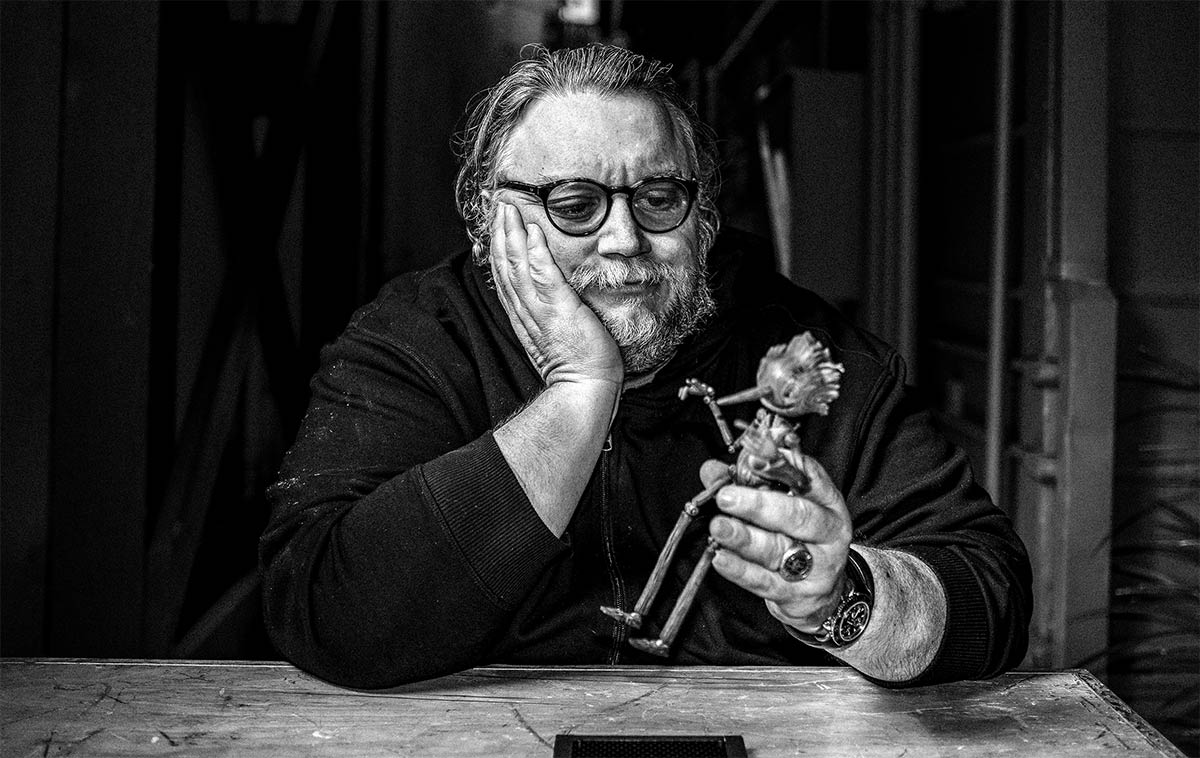Guillermo del Toro doesn’t have a new film at the Cannes Film Festival, but the director was on the French Riviera this week as part of a symposium on the current state of cinema. And he had some choice words about movies in the age of streaming. His diagnosis? Cinema is at a watershed moment in its history, one on par with the advent of sound in the 1920s, and filmmakers and audiences must regain power from the corporation-curated overflow of modern movie watching.
READ MORE: Guillermo Del Toro’s ‘Pinnochio’ Teaser: Netflix’s Latest Fable Arrives In December
Del Toro’s comments came from a festival conference he helped kick off with Paolo Sorrentino, Michael Hazanavicius, Abel Ferrara, and others yesterday at Cannes about the future of cinema. During the conference, del Toro warned that, while more movies and TV shows are in production than ever, the advent of streaming is a runaway train that threatens to reduce cinema from art to mere content. And cinema’s rich history may get lost forever in the process.
“We are in the present losing more movies from the past faster than ever before,” del Toro explained (via IndieWire), “It seems like we aren’t, but the mere disappearance of physical media is already having corporations curating what we watch, faster for us.” Del Toro continued, “The future doesn’t belong to us, so our duty is not to ourselves, but to the future, for the people who come after.”
While by no means a denigration of streamers, del Toro insisted that streaming’s emphasis on production and consumption has viewers losing touch with the more intimate aspects of watching cinema. “Things are getting done, but are they being seen?” del Toro wondered. “This begs the question of what a ‘movie’ ‘is.’ We have to question ourselves. Are we arguing about the size of the screen or the size of the ideas? Are we arguing that cinema can only exist as certain footage, or is it something that holds us with visuals and music and sounds and transports us to a place no other art can?” And at the same time, audiences shouldn’t discriminate where the content they watch comes from. A quote of Del Toro’s from Deadline emphasized the dilemma, “What if the next big movie comes from a streamer, and isn’t seen on the big screen?”
Of course, Del Toro bemoaned certain buzzwords in the streaming experience’s lexicon, like “content” and “pipeline,” citing their usage as “pernicious.” (Indiewire) “These describe oil, water, or sewage,” del Toro explained. “Whatever they describe, they don’t describe art. They don’t describe cinema, because they talk about impermanence, something we’ve just got to flush through. It has to keep moving. In my mind, a beautiful work of audiovisual storytelling should hold its place next to a novel, a painting. We don’t talk about paintings. We only talk about paintings when we’re in front of it. A painting is always new.”
For del Toro, it’s not just cinema’s future at stake here but its integrity as an art form. In other words, the streaming situation affects filmmakers as much as it does audiences, and, via The Wrap, del Toro said movie creators “can’t be shy about the platforms.” If filmmakers and audiences wish to maintain Film’s integrity in the future, it’s not only the resilience of storytelling and the tactile dimensions of film production, theater experience, and home media that need to be preserved. The audience must also lean into actively selecting, holding, and discovering a movie experience for oneself instead of merely watching one chosen by an online algorithm. And artists also need to engage with the inherent adversity of the artistic process. If filmmakers “want to break the machine [of streaming] from the inside” they must remain steadfast “troublemakers” and “rebels,” del Toro stated. Butting heads against those who dictate formula, whether that’s an algorithm or a producer’s rigid formula, remains essential.
In essence, del Toro asks for a cinematic future that doesn’t neglect its past and tactile processes and where corporate interests don’t overpower the voices of cinema’s artists and audience. Streaming platforms may be here to stay, but it’s not something to grieve, but instead to work with. “Any time you’re missing voices, you’re missing the symphony being complete,” del Toro said (again via The Wrap). “Art is not possible without disobedience, and art is not possible without assholes. You have to measure your sanity against the assholes. The second worst thing that can happen to you is total success or total freedom. Adversity is the language of art.” So, a full symphony of cinema through active struggle. We like where your head’s at, Guillermo.
Del Toro’s next film, a stop-motion animated musical of “Pinocchio,” comes out this December on Netflix.





